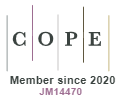Thoracic drainage in the respiratory mechanics and autonomic function in the postoperative period of cardiac surgery
DOI:
https://doi.org/10.5585/conssaude.v7i4.1420Keywords:
Cirurgia torácica, Drenagem, Fenômenos Fisiológicos Cardiovasculares, Mecânica respiratória, Sistema Nervoso Autônomo.Abstract
This paper aimed to evaluate the influence of thoracic drainage under negative aspiration in lung mechanics and cardiac autonomic function in postoperative period of cardiac surgery. In this research, characterized as a prospective cohort, six patients were evaluated for respiratory mechanics (compliance and resistance) and heart rate variability. Both tested with continuous negative aspiration (phase 1) and without aspiration (phase 2). Data were analyzed using paired Student test. The complacency found in phase 1 (42.48 ± 10.56), did not differ to the phase 2 (42.29 ± 10.45) (P = 0.79). Already the resistance would demonstrate trend of reduction from phase 1 (0.08 ± 0060) to phase 2 (0.06 ± 0054), but without statistical difference (P = 0076). The indices of variability demonstrated propensity to increase the parasympathetic activity and reduction in the sympathetic from phase 1 to 2. It is concluded that the use of negative suction could inferred trend of deterioration in pulmonary resistance and cardiovascular automatism. Further studies should be conducted to confirm the hypothesis.Downloads
Downloads
Published
2009-03-11
How to Cite
1.
Santana LL de, Leal PP, Gimenes AC, Cipriano Junior G, Fonseca JHP da. Thoracic drainage in the respiratory mechanics and autonomic function in the postoperative period of cardiac surgery. Cons. Saúde [Internet]. 2009 Mar. 11 [cited 2025 May 23];7(4):535-40. Available from: https://periodicos.uninove.br/saude/article/view/1420
Issue
Section
Artigos
License
Copyright (c) 2008 ConScientiae Saúde

This work is licensed under a Creative Commons Attribution-NonCommercial-ShareAlike 4.0 International License.
Views
- Abstract 300
- PDF (Português (Brasil)) 495







